Islamic State militants attacked a military base in Jakana town in northeast Nigeria’s Borno state after ambushing a military vehicle nearby and killing the six soldiers aboard, two military sources told AFP Thursday.
Heavily-armed Islamic State West Africa Province fighters opened fire on a patrol vehicle on Wednesday, July 17 near Jakana, which is around 40 km (25 miles) west of Borno state capital Maiduguri, killing all the soldiers on board.
“We lost all six soldiers in the ambush, including a colonel,” said the first of two military sources, who both spoke on condition of anonymity.
The soldiers were on their way to Maiduguri from Damaturu, the capital of neighboring Yobe state, when the militants attacked around 5:20 p.m. local time (1620 GMT), said the source.
“The gun truck the soldiers were driving in was destroyed,” the second source said.
Following the ambush the insurgents attacked a military base just outside Jakana in seven technicals – pickup trucks fitted with machine guns, also known as gun trucks in Nigeria – engaging troops in an hour-long battle, the sources said. The attack was repelled by soldiers at the base, with ISWAP fighters abandoning weapons and one vehicle as they fled.
Nigeria’s Sun News outlet, which first broke news of the raid on Jakana on Wednesday, said the attack began at around 6:30 p.m. and that scores of residents had fled into the bush.
The army has not officially confirmed the attacks, and ISIS has not yet said that ISWAP fighters were responsible.
Update July 18 Later on Thursday, a Nigerian military spokesperson confirmed both the ambush and the attack on Jakana.
Colonel Ado Isa, Director Public Relations of Operation Lafiya Dole, said that Sector 1 troops repelled the attack on Jakana, Channels TV reported. Isa also said troops attached to Sector 2 were ambushed in a technical near Benisheikh, west of Jakana. Isa did not give any details on either incident.
Citing sources at Maiduguri Specialist Hospital, Channels TV reported that three Jakana civilians who were injured in crossfire were treated in the hospital, but one of them later died.
Update July 19 Nigerian military spokesperson Colonel Ado Isa gave additional information on the incidents in a Friday release on Facebook.
Isa said that troops from 212 Battalion deployed at Forward Operating Base Jakana “neutralized unconfirmed number of Boko Haram/ISWAP Terrorists when they woefully attempted to infiltrate their base” on Wednesday.
Insurgents in seven technicals attacked at about 1845 but were “thwarted with heavy fire and bombardment,” Isa said, adding that they withdrew west towards Benisheikh.
One technical was destroyed, and an anti-aircraft gun, two rocket-propelled grenade launchers, two AK-pattern assault rifles and ammunition were recovered.
“Sadly, a Colonel and a Captain as well as three soldiers on transit from Maiduguri to Damaturu run into an ambush staged by the routed/fleeing terrorists from the Jakana axis which led to their unfortunate death,” Isa added, a sequence of events contradictory to earlier reporting.
Further complicating the sequence of events, PRNigeria reported intelligence sources as saying that 11 insurgents were killed when they were ambushed in the Jakana area by Nigerian military personnel after the militants had attacked a patrol. The report did not say when the events had occurred.
The 120-km Maiduguri-Damaturu road has seen repeated attacks, on military bases and markets in villages. ISWAP’s main area of operations is further east in the Lake Chad area.
ISIS-claimed attacks in the Maiduguri area, previously dominated by the Shekau-led Boko Haram faction, have been concentrated on military bases north of the state capital, although there has also been an uptick in ISWAP attacks on bases south of Maiduguri.
In late June, ISWAP fighters in seven technicals and on motorcycles attacked a military base at Goniri, in Yobe state, around 60 km southwest of Jakana.
Jakana population moved by military
In early December, three civilians were killed during clashes between Nigerian soldiers and ISWAP militants in Jakana.
In January, ISWAP reportedly sent letters to residents of Jakana and nearby Mainok telling them to vacate their homes ahead of an impending raid on the military.
ISIS claimed ISWAP fighters on April 5 clashed with the Nigerian army in Jakana and Mainok, killing and injuring an unspecified number and destroying six vehicles.
On April 8, up to 10,000 residents of Jakana were moved at very short notice by the military to the Bakassi camp for internally displaced people in Maiduguri where they were screened. They were moved without “time to collect personal belongings,” the United Nations said.
A Nigerian Army spokesperson later said that the relocation was related to intensive multi-nation operations against insurgents around Lake Chad, 150 km further northeast, but the Guardian reported a military source as saying the people of Jakana were suspected of “conspiring with Boko Haram.” A Punch source repeated the allegation, saying that the insurgents come to Jakana “with agreement that they will not attack the town” or kill any of its people, and that they allow “the insurgents to freely come in and make purchases from shops.”
Residents were allowed to start returning to Jakana on April 11, the U.N. Office for the Coordination of Humanitarian Affairs said.
Friday’s PRNigeria report also alleged that people in the area were offering succour to insurgents, saying without revealing its sources that communities including Matari, Mada, Burgozo, Duwari, and Didiri aid, support and offer help to “extremists.”
General warns Nigeria insurgents to lay down arms
Wednesday’s attacks came hours after a senior military officer in the northeast warned terrorists in the region to disarm or be destroyed.
Recently promoted Major-General Abdulmalik Bulama Biu told reporters in Maiduguri that the insurgents should lay down their arms “or prepare for a fierce encounter with me.”
Biu is General Officer Commanding 7 Division and Commander Sector 2 Operation Lafiya Dole, the Nigerian military operation against Boko Haram and ISWAP.
The Nigerian military seldom comments on the ongoing counter-insurgency operations, and tends to downplay the insurgents’ effectiveness, rarely acknowledging engagements and seemingly understating military casualties and equipment losses.
In one case, after ISWAP fighters in April attacked a Nigerian military base in Sabon Gari, between Damboa and nearby Biu, the Nigerian Army described reporting on the incident as “unsubstantiated” and “fake,” saying it was the work of “Boko Haram sympathizers.”
A month later on May 24, ISWAP fighters ambushed a convoy that was transporting civilians from Sabon Gari to Damboa. Media reported that between five and 25 Nigerian soldiers died in that attack, but again the Nigerian Army described those reports as “fake news” and denied there had been any attacks on military personnel in Borno state.
The civilians in the convoy were being moved by the military at short notice to displacement camps in Damboa.
ISWAP in Nigeria
The jihadist group known as Boko Haram began its bloody insurgency in northeastern Nigeria in 2009, but it has since spread into neighboring Niger, Chad and Cameroon, prompting a regional military response. More than 27,000 people have been killed and two million others displaced, sparking a dire humanitarian crisis in the region. The U.S. assesses that Boko Haram and ISWAP have been responsible for over 35,000 deaths since 2011.
Boko Haram split into two factions in mid-2016. One, led by long-time leader Abubakar Shekau, is notorious for suicide bombings and indiscriminate killings of civilians. Shekau pledged allegiance to ISIS leader Abu Bakr Al-Baghdadi in March 2015, but ISIS central only gives formal backing to the other faction, which it calls Islamic State West Africa Province.
The ISWAP faction, which largely focuses on attacking military and government targets, was led by Abu Mus’ab Al-Barnawi, but in March, audio recordings revealed that ISIS appointed Abu Abdullah Idris bin Umar, also known as Ibn Umar al-Barnawi, as leader. Despite releasing several videos featuring ISWAP since, ISIS has not yet made a public statement confirming the change.
Since May, Islamic State has attributed insurgent activities in the Mali-Burkina Faso-Niger tri-border area to its West Africa Province affiliate, rather than to what was previously known as Islamic State in the Greater Sahara. In a June 15 ISIS propaganda video, ISWAP militants purportedly in Nigeria, Mali and Burkina Faso were shown reaffirming their pledge of allegiance to ISIS leader Baghdadi.
The regional counter-insurgency Multinational Joint Task Force which comprises personnel from Chad, Cameroon, Niger, and Nigeria, launched Operation Yancin Tafki on February 21 to battle the insurgents. It has said the cross-border operation is aimed at “making islands and other settlements in Lake Chad untenable for Boko Haram Terrorists.”
With reporting from AFP


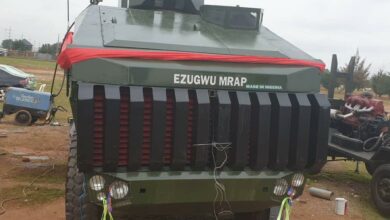
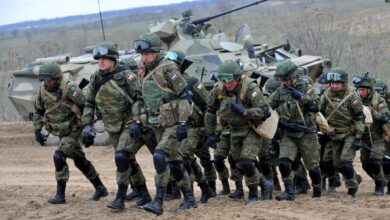

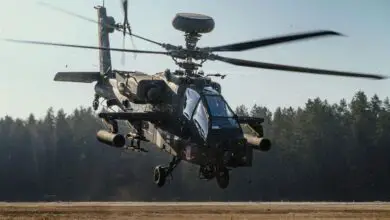
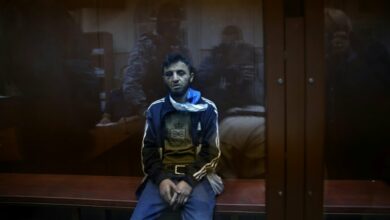
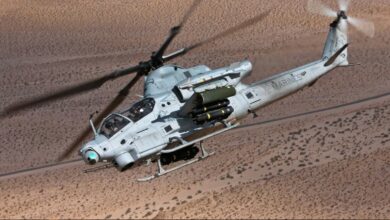

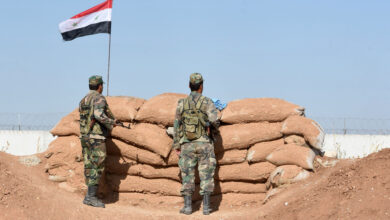
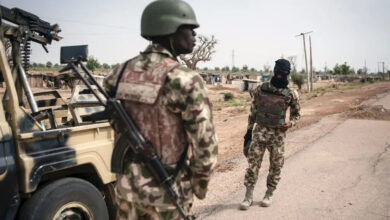
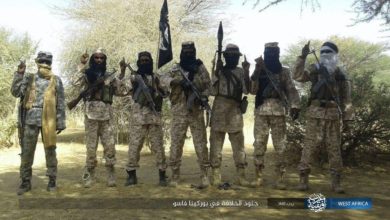
2 Comments